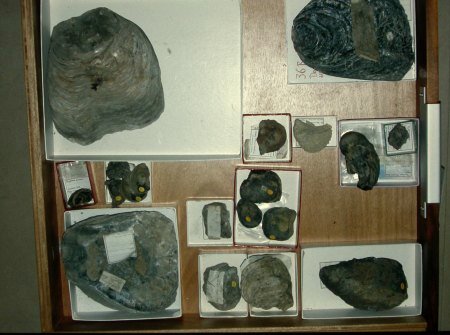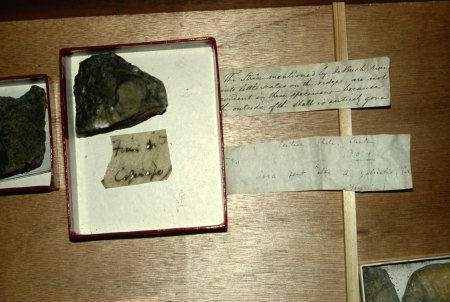At the end of May 1834 at last Cape Horn was rounded and the Pacific
Ocean reached. Darwin decided to become a naturalist and not a minister.
He became still more convinced that Lyell was right: not catostrophes but
gradual processes had changed the surface of the Earth. He discovered many
fossils of giant animals which had surely not died in a disaster. During
one of his travels on land he found shell beds at a height of 350 m, shells
like they still occur in the present time. This too strengthened his opinion
that the land had been rising slowly.
In the Natural History Museum in Londen behind the scenes collections of
Darwin are kept. We got permission to have a look at them. This is a case
with shells, which he had sent to England. |
Lying with the Beagle off the coast of Chile he experienced an earthquake.
The city of Conception, which was situated 200 miles to the north, was completely
destroyed by this disaster. It was the worst earthquake Chile had ever been
struck by. Darwin was told that during the quake a group of rocks had risen
above sea level and he found a layer of shells sticking out some feet above
the water. He had seen the process of the rising of the land on the spot!
In this way the Andes, too, must have been pressed upwards feet by feet.
Darwin collected also many pieces of rock on his explorations. On the photo
a specimen with a piece of paper with Darwin's handwriting. |

